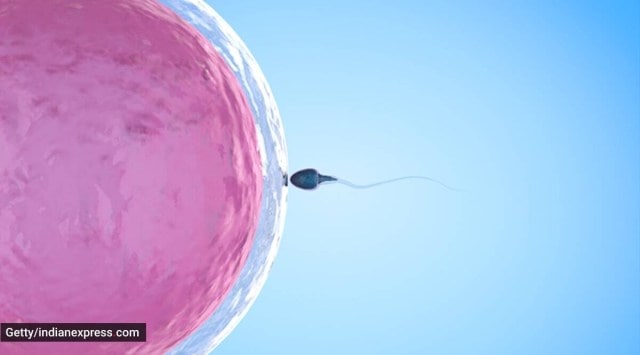Why are more men becoming infertile? Is obesity to blame?
Many studies have shown how obesity in men negatively affects basic sperm parameters such as sperm count, concentration and motility, increases the possibility of being diagnosed with infertility and reduces the chances of conception, says Dr Mannan Gupta, gynaecologist, Elantis Healthcare, New Delhi
 Low sperm count, low sperm motility (movement) and poor sperm quality are why couples find it difficult to conceive nowadays. (Photo: Getty Images/Thinkstock)
Low sperm count, low sperm motility (movement) and poor sperm quality are why couples find it difficult to conceive nowadays. (Photo: Getty Images/Thinkstock)Written by Dr Mannan Gupta
Having a child of their own is a dream for every married couple but the recent rise in infertility cases has prevented it from becoming a reality, especially in urban India. We have been witnessing an increase in the number of cases of infertility every passing year, with over 35-40 per cent of the cases being caused due to disorders in the male reproductive system. Low sperm count, low sperm motility (movement) and poor sperm quality are why couples find it difficult to conceive nowadays.
One of the most common factors affecting the ability to conceive is the poor and sedentary lifestyle choices by men. They drink and smoke daily, have irregular sleep patterns and consume a lot of junk food at inappropriate times. All of these reasons lead to a poor sperm count. Many times, a healthy lifestyle correction with regular exercises and a nutrient-rich diet has improved male fertility.
It is common knowledge that physical exercise is essential to keep the body fit and protected from several life-threatening disorders. But it is also worth noting that exercising and heavy lifting can improve a person’s fertility by boosting production of the male hormone called testosterone. This allows men to lose fat and regulate hormones in their bodies, which not only boost fertility but also improve cardiovascular health. Being overweight is one of the most common reasons for a low sperm count.
Recent meta-analyses by the Robinson Research Institute, The University of Adelaide, Australia, have indicated that obesity in men negatively affects basic sperm parameters such as sperm count, concentration and motility, increases the possibility of being diagnosed with infertility and reduces the chances of conception. The researchers say, “Sperm DNA damage, typically characterised by DNA strand breaks and oxidation of DNA nucleotides, is a specialised marker of sperm quality that has been independently associated with recurrent miscarriage, reduced assisted reproduction success and increased mutational loads in subsequent offspring. While there is still conflicting data in humans as to the association of obesity in men with sperm DNA damage, evidence from rodent models is clear, indicating that male obesity increases sperm DNA damage. Human data is often conflicted due to the large heterogeneity amongst studies, the use of body mass index as the indicator of obesity and the methods used for detection of sperm DNA damage. Further, comorbidities of obesity (i.e. heat stress, adipokines, insulin resistance, changes in lipids, hypogonadism and obstructive sleep apnoea) are also independently associated with increased sperm DNA damage.”
Scientists at Newcastle University have shown that new mutations, not inherited from the father or mother but occurring during the reproduction process, when the DNA of both parents is replicated, can result in infertility in men later in life.
According to an Indian study published in Journal of Human Reproductive Sciences in 2015, “Time and again, various studies have been published supporting a decline in sperm quality or dismissing the same. Analysis of retrospective data indicates that sperm counts may have declined in some parts of the world, but there seems to be geographical variations in the semen quality. The reason for geographic variations in semen characteristics is not clear, but it may be due to environmental, nutritional, socio-economic, or other unknown causes. The decline in the semen quality coincides with an increasing incidence of abnormalities of the male genital tract including testicular cancer and cryptorchidism in various countries.”
While there has been a substantial increase in male infertility, there has also been an increase in female infertility. But the good news is that new advanced technologies and procedures can provide hope when conventional corrective methods don’t work.
Photos





- 01
- 02
- 03
- 04
- 05

























